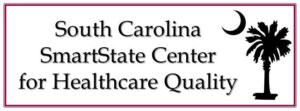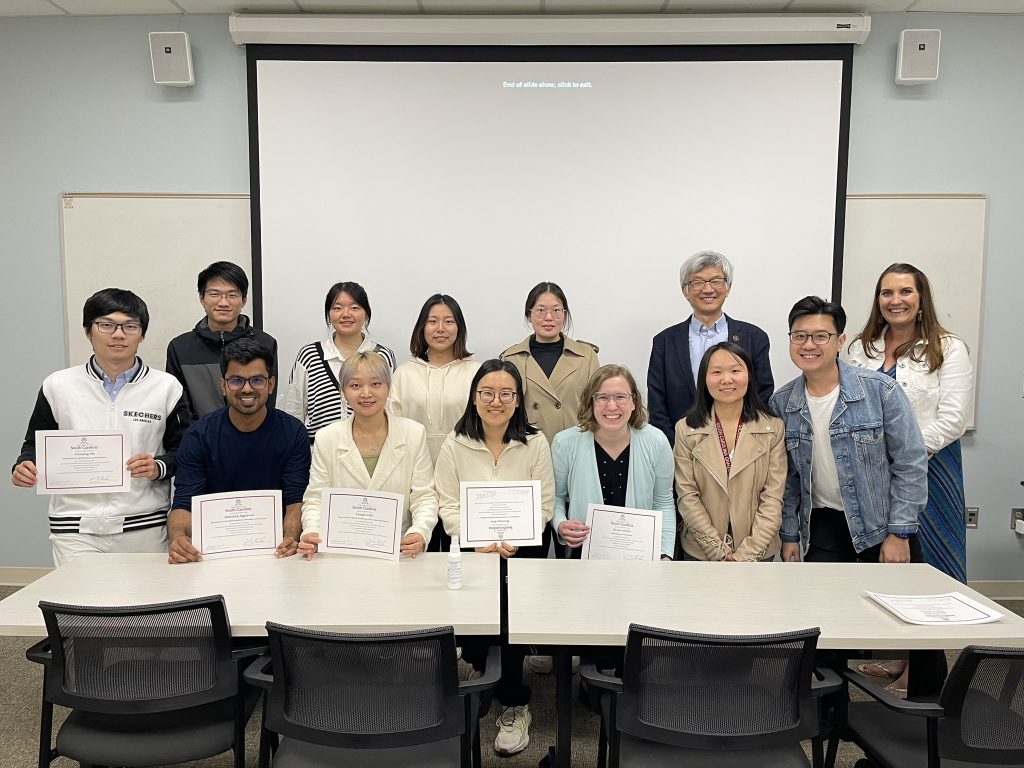About the CHQ Junior Scholar Program


2025-2026 CHQ Junior Scholar Program
Hosted by: University of South Carolina – Arnold School of Public Health (ASPH) & CHQ
The South Carolina SmartState Center for Healthcare Quality (CHQ) is committed to engaging in innovative research that will enhance the quality of life for individuals in South Carolina and around the world. Our mission is to contribute to advances in healthcare and population health through rigorous research, education, community engagement, and policy advocacy.
Website: chq.sc.edu
Goals:The CHQ Junior Scholar Program is designed to:
- Promote early exposure of graduate students from across various colleges and schools at the University of South Carolina to advanced research training.
- Enhance students’ experiences in education, research, and professional development.
- Cultivate students’ research interests in healthcare and population health.
- Increase interdisciplinary collaboration at USC.
Benefits of the CHQ Junior Scholar Program:
- One-on-one mentoring relationship with a CHQ faculty member.
- Hands-on research experience.
- Close interaction with other pre-doctoral and post-doctoral trainees at the CHQ.
- Supplementary stipend: $1,500 per semester ($3,000 per year)
- Additional Funds upon request (up to $1,500 per person per year) to help defray travel expenses to participate in a scientific conference or to publish research findings
Responsibilities and Expectations of Junior Scholars:
- Maintain good academic standing in home department/program (i.e., GPA ≥ 3.5).
- Establish a mentoring team consisting of scholar’s CHQ faculty mentor and other scholars to create individualized research goals
- Establish a mentoring team consisting of scholar’s CHQ faculty mentor and other scholars to create individualized research goals
- Actively engage in an area of research mutually determined by CHQ faculty mentor and junior scholar
- Contribute as a leading-author on at least one publishable manuscript during the year of commitment that is developed in collaboration with the mentoring team
- Present research findings at annual CHQ Junior Scholar symposium/li>
- Make one local, state, national, or international scientific presentation during the year/li>
- Improve grant writing skills through trainings and opportunities offered by the CHQ/li>
Professional Development:
- Meet with CHQ faculty mentor each semester to review progress
- Attend Junior Scholar professional development presentations offered by the CHQ (e.g., CHQ weekly seminar)
- Attend professional development presentations offered by ASPH and other university units
- Work closely with other pre-doctoral and post-doctoral level trainees at the CHQ
- Network with other experts in the field via the CHQ’s network of researchers and community partners
Education
Research:
Areas of interest:
The admitted Junior Scholars will work closely with their assigned CHQ faculty mentors and determine areas of research to which Junior Scholars will be dedicated under the program. The applicants are strongly encouraged to identify a research topic(s) in line with CHQ faculty mentors’ research agenda but can also propose their own research topics. Following are examples of CHQ’s areas of research interest:
Application Procedure
Interested students should submit their applications to Dr. Cheuk Chi (George) Tam via email at ctam@mailbox.sc.edu by March 15, 2025.
Application Package:
- Cover letter stating research interests and career goals.
- Curriculum vitae.
- Academic graduate transcripts (student copies accepted).
- Letter of support/recommendation from current doctoral program advisor.
- One sample of scientific writing (e.g., publication, class paper, etc.).
Following Junior Scholar notification and acceptance, enrollment begins on May 16, 2025. Reappointment is possible but not automatic.
For additional inquiries, contact Dr. Cheuk Chi (George) Tam at ctam@mailbox.sc.edu.